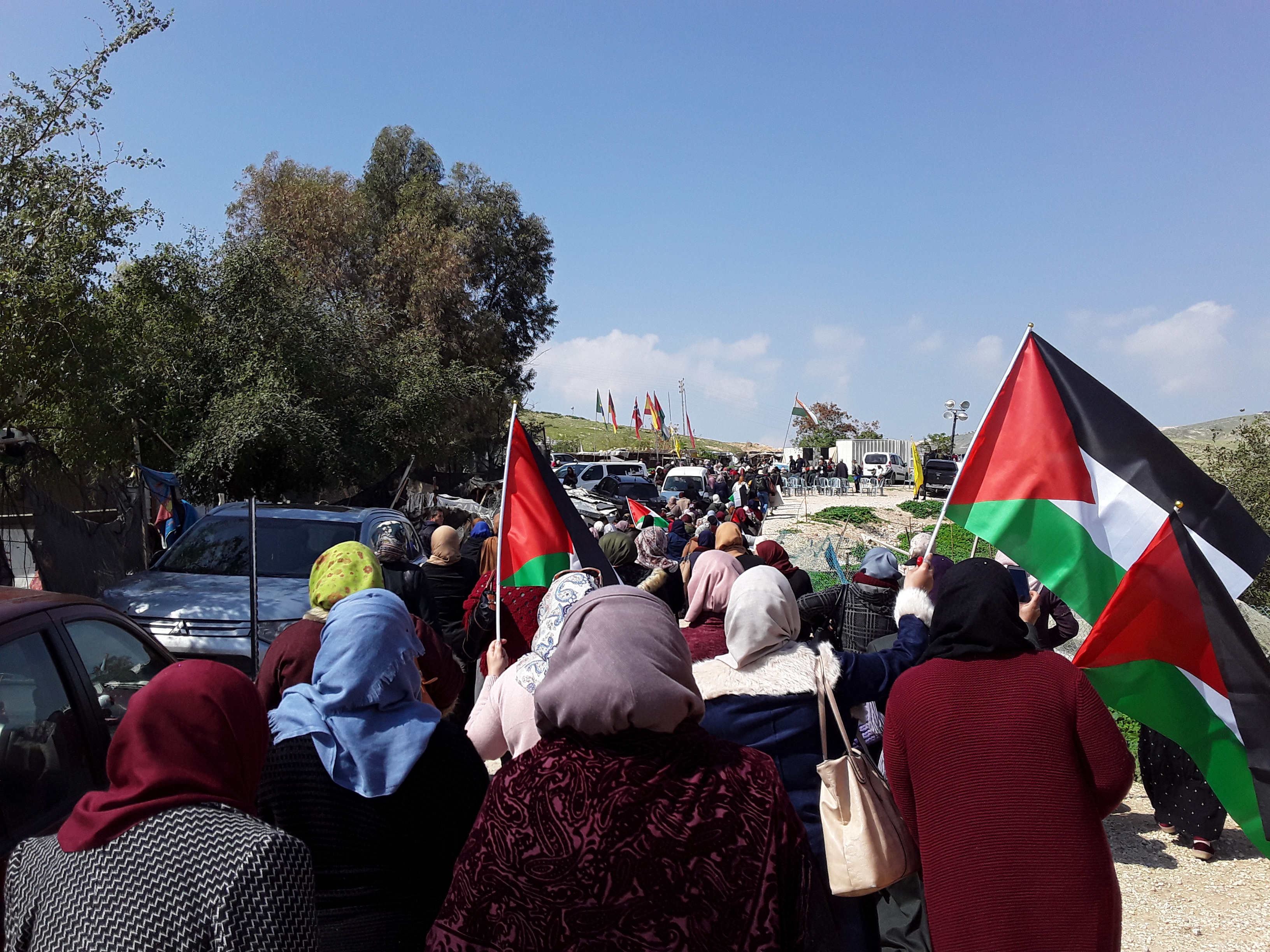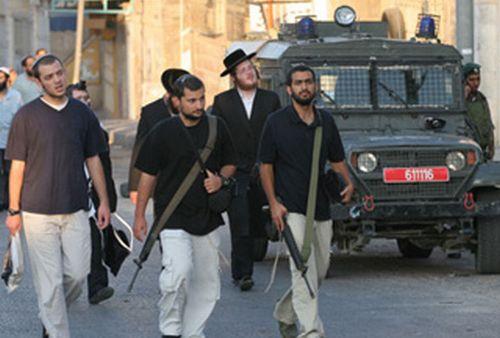Tag: Ethnic Cleansing
-
Women from across Palestine gather in Khan al-Ahmar, call for resistance
March 6, 2019 | International Solidarity Movement, Al-Khalil team | Hebron, occupied Palestine Hundreds of women from all over Palestine met in Khan al-Ahmar on Wednesday March 6. The meeting was a response to a call for solidarity made by the General Union of Palestinian women and the residents of Khan al-Ahmar, as…
-
Settlers’ continue to terrorize Al-Khalil
17th February 2019 | International Solidarity Movement, Al-Khalil team | Hebron, occupied Palestine At the end of January the occupation barred international ‘observer’ groups from Al-Khalil (Hebron), who were stationed throughout the city for more than 20 years, following the massacre of 29 Palestinians inside Ibrahim mosque in 1994 by a fanatical Israeli terrorist.…



